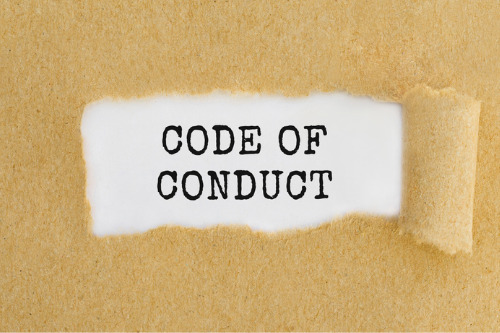

The Financial Services Legislation Amendment Act (FSLAA) has meant a large raft of changes for adviser businesses, and while the Code of Conduct has been one of the trickier aspects of the new regime to navigate, experts say it is also one of the most important to get right.
The new Code of Conduct began its development in 2017 following the appointment of a Code Working Group, and was approved by the then-Minister of Commerce and Consumer Affairs Kris Faafoi on 7 May 2019. It sets out a series of ethical and practical guidelines around how advisers should act, and how they should maintain their competence, knowledge, and skill.
However, the difficult part for advisers has not been the Code itself - rather, it is proving to the regulator that they are meeting its standards on an ongoing basis, particularly given that some of the standards are quite broad and open to interpretation.
Angus Dale-Jones, chair of the FSC Code Committee, who regularly speaks to FSC members and helped write the new Code of Conduct said that the purpose of the Code is to “empower” the financial advice community, and to provide a set of professional standards that the public knows must be adhered to.
He said that backing it up with legislation has been an interesting but important move, as it gives the consumer assurance that there is a strong framework of oversight in place, and that advisers will face consequences if they don’t adhere to the rules.
“What’s interesting about it is that it’s not a professional code by itself, it’s actually a code that’s powered by the legislation,” Dale-Jones said. “In 2007 the Financial Advisers Act was being developed, and the whole plan of government then was to empower the financial advice industry to set its own professional code. It was in the absence of agreement from across the financial advice industry that the government then said that the legislation was going to drive the code.”
“I think that tells two really important stories,” he explained. “The first is that if you call yourself a ‘profession’ and portray any set of values externally, you have to decide how you want to behave, and it’s reasonable for people to expect that you show that in some way. A code is a mechanism for doing that.
“The second message is that codes don’t mean anything unless you’re held to account over them. There’s no point in saying ‘yes, I believe in the code’ and then behaving in a way that’s not consistent with it. The whole reason for it now sitting in the legislation is for that legislation to effectively give it an enforceability envelope, and so if it isn’t followed, then there are consequences for that.”
In dissecting how the Code works, Dale-Jones said it’s all about the ‘what, why and how.’ He noted that expectations of the financial advice industry have changed dramatically over the past few decades, and most notably within the past few years, given how hard Australia’s sector was rocked by the outcome of the Royal Commission.
Given these changes, the approach of the financial advice sector to its own profession has also needed to change - something the Code brings together in all of its standards.
“Codes are all about bringing people together to a common set of values, and that’s something that distinguishes them from legislation that is imposed,” Dale-Jones said. “But the other aspect of codes is the flexibility. The ‘why’ ties very closely to the evolving social contract, particularly over the last 25 years, and what is expected of financial advisers is very different now.
“Some of those things that advisers are now expected to do are very difficult to pin down in precise terms, and the ‘what’ is simply to treat clients fairly - and that doesn’t sound too complicated. But when you dig into it, there are lots of aspects to it, and the ‘how’ is the actual standards within the code, and that’s where some precision starts to come in, albeit still at a principles level. Those are the things you need to do in order to achieve that ‘what.’ So those three things, the why, what and how, all tie together to hopefully get you to a useful place.”
